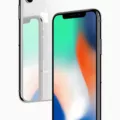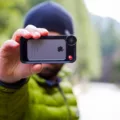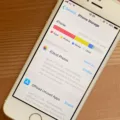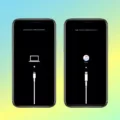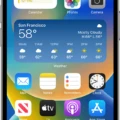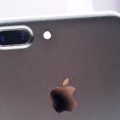Having clear sound during your phone calls is important to ensure you can hear and be heard. But, have you ever stopped to thik about what is actually producing the sound? It’s your phone’s speaker! Keeping your phone speaker clean is essential for maintaining the quality of the sound. Here are a few tips on how to clean your phone speaker.
Start by turning off your device and unplugging it from any power sources. This will help prevent any damage from occurring as you clean it. After this, you can use a soft brush or cloth (like a cotton swab) to gently remove any dust particles from the area around the speaker grille. Be sure not to press too hard as this might cause damage to the speaker itself.
Next, use a damp cloth (not dripping wet) to wipe away any dirt or dust that may be stuck in the grille itself. This should help dislodge any stubborn particles that were not removed with the brush or swab. Again, make sure not to press too hard when wiping down the grille as this could damage it further.
Finally, allow your device some time to air-dry before using it again. Make sure that all of the moisture has been removed before powering it back on and using it normlly again.
By following these steps, you can keep your phone’s speaker free from dirt and dust buildup so that it continues producing clear sound dring your conversations. Having a clean speaker also helps extend its life expectancy so that you won’t have to replace it as often!
Cleaning Dirty Phone Speakers
Cleaning dirty phone speakers is a relatively easy process. First, make sure you wash your hands thoroughly before handling the device. Then, turn off the phone and use a soft-bristled toothbrush to gently brush away dirt from the speaker port. Gently shake the phone to dislodge any remaining particles, then wipe down your device with a dry cloth or microfiber towel. If necessary, use a cotton swab dipped in rubbing alcohol to remove stubborn dirt or grime from the speaker port. Finally, reassemble your phone and enjoy clean sound again!
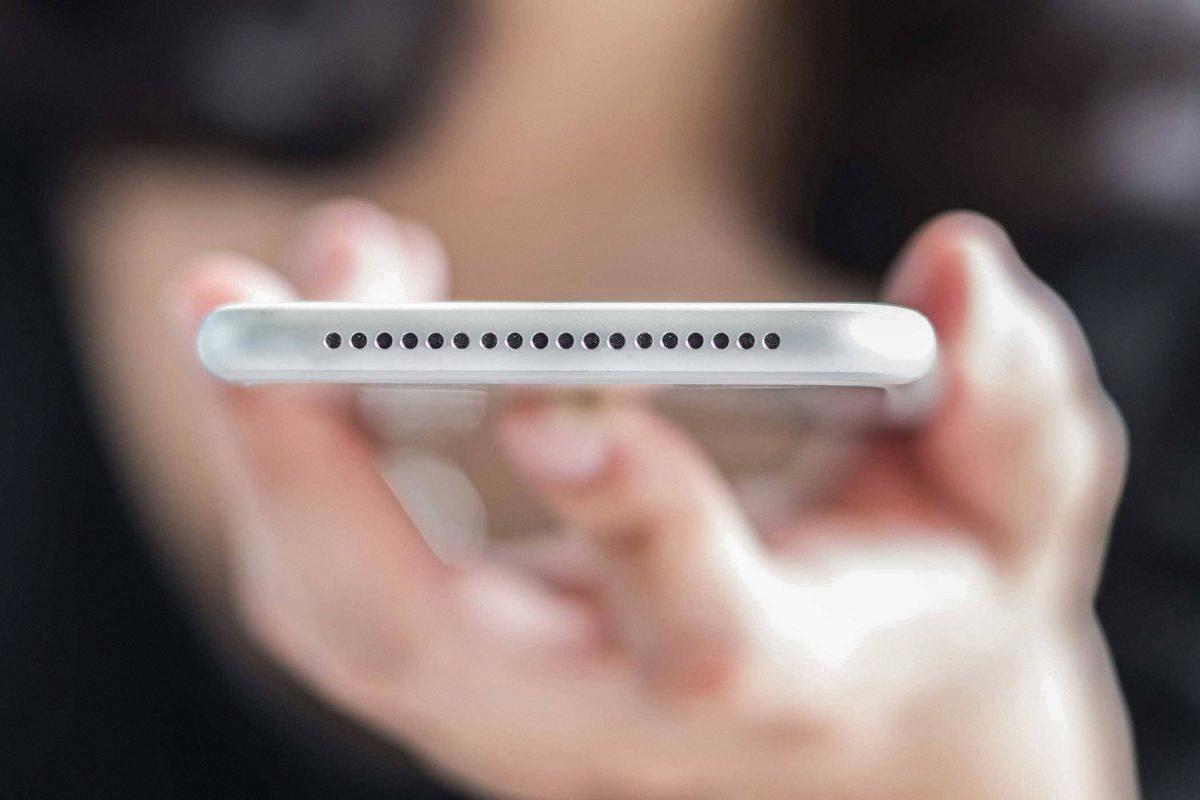
Source: thelabrepair.com
Consequences of Oil Getting Into Phone Speaker
If you get oil in your phone speaker, it can block the sound waves from being able to pass through and be heard clearly. This can cause muffled audio, distorted sound, or even no sound at all. To try and resolve this issue, you shuld first turn off the phone and place it somewhere warm. Then, prop the phone vertically with the speaker and microphone facing downwards so that any excess oil can flow out by gravity. If this does not work, then you may need to take your phone to a repair shop for professional cleaning.
Testing Phone Speakers
The best way to test your phone’s speakers is to use the diagnostic tool. To access it, dial *#7353# on your phone. Once you enter the diagnostic tool, select Speaker to test the external speaker, and Melody to test the internal speaker. If your phone’s speakers are working fine, you will hear loud music coming from them.
Cleaning Dirty iPhone Speakers
To clean dirty iPhone speakers, start by using a soft bristled brush to gently brush the speaker grilles. Make sure not to apply too much pressure as this can cause damage. Then, use a microfiber cloth or a lint-free cloth with some mild soap and water to wipe away any gunk that may have built up on the speaker grilles. Avoid using rubbing alcohol or any kind of liquid, as well as compressed air or any sharp objects, which can damage the speakers. Finally, consider investing in special cleaning putty designed specifically for cleaning iPhone speakers.
Troubleshooting Hearing Issues with an iPhone
It’s possible that the speaker on your iPhone may be blocked or damaged, preventing sound from coming out. Check your Settings > Sounds (or Settings > Sounds & Haptics) to make sure the Ringer and Alerts slider is not dimmed. If it is, try dragging the slider back and forh a few times. If you still can’t hear any sound, then it’s likely your speaker needs to be serviced.
Cleaning Speakers: Is It Necessary?
Yes, it is important to clean your speakers regularly in order to keep them sounding their best. Dust and debris can accumulate in the components of your speakers and affect the way they work, leading to middling audio. To clean your speakers, you should use a soft cloth or brush and vacuum gently aound the components. Make sure to avoid using water or any cleaning chemicals as this could damage your speakers. With regular cleaning and maintenance, you can ensure that your speakers remain crisp and accurate for years to come.
The Risk of Phone Speaker Damage from Drying Out
Yes, your phone speaker will eventually dry out if left under room temperature for several hours (usually 24hrs at max). However, it is important to note that in order for the drying process to be effective, you should place your phone in such a way that the affected speaker is facing down. Additionally, you can also bury your phone in uncooked rice for at least 24 hours to help absorb any moisture inside the device.
Low Phone Speaker Volume: Causes and Solutions
The low sound quality coming from your phone speaker could be caused by a few dfferent issues. It could be a hardware issue such as a problem with the speaker itself, or it could be an issue with the software settings on your phone. It could also be due to debris or lint buildup in your headphone jack which is restricting sound output. To troubleshoot, try cleaning out any debris from your headphone jack and see if that solves the problem. You can also check to make sure that the volume settings on your phone are not set too low and check for any software updates available for your device.
Low Volume on Phone Calls: Causes and Solutions
Low volume on phone calls can be caused by a few different things. It coud be a problem with your microphone, or it could be that the speakers are full of lint and dust, which can muffle the call volume. Another cause could be an issue with your phone’s settings, such as the volume being set too low. To troubleshoot, try cleaning your speakers first, then check your microphone and phone settings to see if there is something you can adjust.
Investigating the Causes of Quiet Phone Speakers
There are several reasons why your phone speakers may be too quiet. It could be that your phone’s volume is set too low, or that you have an audio enhancement feature turned on like noise cancellation. It could also be that the sound being played has a low volume or that the audio files themselves are of low quality. It is also possible that the phone speaker itself has become damaged over time due to dust or dirt buildup, or may need to be replaced altogether.
Signs of a Damaged Speaker
If you suspect that a speaker may be damaged, thre are a few telltale signs to look for. First, you should check for any physical damage to the speaker cabinet or cone. Look for any cracks, holes, or discoloration on the cone or cabinet that may indicate a malfunction. If there is no visible damage, then you should listen to the speaker and check for any strange noises or distortion in the sound. Common sounds of a damaged speaker include buzzing, popping, crackling, or an overall distorted sound. Additionally, if there is no sound coming from the speaker at all, this could also be an indication that it is damaged.
Signs That Your Phone Speaker Is Blown
If your phone speaker is blown, you may experience a few different symptoms. First, you may find that there is no sound coming out of the speaker at all – only through the earpiece. Second, you may hear crackling or intermittent audio when trying to listen to music, watch videos, or make calls. Finally, you may notice a decrease in the overall volume of your phone’s audio output. If any of these symptoms sound familiar, it’s likely that your phone speaker is blown and will need to be replaced.
Causes of Cracking Sound from iPhone Speakers
IPhone speakers can crackle due to a variety of reasons. It could be from a hardware issue, such as dust or debris build up on the speaker port. It could also be from software issues, such as an outdated iOS version or incorrect sound settings. To figure out the root case of the crackling, you should check your sound settings and install the latest iOS updates. If this does not resolve the issue, then it is likely a hardware issue and you should book a Genius Bar appointment to have your iPhone checked out.
Troubleshooting Poor Call Quality on iPhone
If you’re having trouble hearing calls on your iPhone, there are several things you can try to fix the issue. First, make sure nothing is blocking the receiver, such as a case or screen protector. If you have a new iPhone, remove the plastic film on the front and back of the device. Check the receiver opening to see if it’s blocked or dirty. If necessary, clean the receiver opening with a small, soft-bristled brush. You should also check to make sure your volume is turned up all the way and that Do Not Disturb mode isn’t activated. Lastly, if you are sill having trouble hearing calls, it may be beneficial to try using a headset or headphones with a microphone so that you can hear more clearly.
Low Volume on iPhone Ear Speaker
There are several reasons why your iPhone ear speaker may sound low. One of the most common causes is dust, dirt, or lint getting into the speaker and blocking some of the sound. Another potential case is a worn out speaker, which can reduce its ability to make loud sounds. Additionally, debris in other parts of the phone can interfere with audio quality. Finally, a malfunctioning microphone can also affect audio quality. To address this issue, try cleaning out all speakers and microphones first, then check the volume settings and adjust accordingly. If that doesn’t work, you may need to take your phone in for repair or replacement.
Resetting a Phone Speaker
To reset your phone speaker, start by going to your phone’s Settings. Select Sounds and Vibration, then tap the Volume option. Move the Media slider all the way to the left to mute all sounds. Wait for 30 seconds before moving the slider back to the right. This should reset your phone’s speaker and you can check if it is working properly now.
Cleaning Speakers: What Tool to Use?
The best tool to use to clean a speaker is a soft-bristled toothbrush. Start by lightly brushing away any lint or dust that might have built up around the edges of the speaker. Be careful not to push the debris furthr in, and make sure you stroke away from the speaker. You can also use compressed air to blow out any excess dust and lint that may be stuck inside.
Can Dust Cause Damage to Speakers?
Yes, dust can definitely damage speakers. When dust builds up on the speaker cone and surrounds, it can block sound waves from passing through the speaker, resulting in a muffled or distorted sound. Additionally, dust can also cause friction between the moving parts of a speaker, which can damage the speaker over time. To prevent this from happening, it’s important to keep your speakers clean and stored in a protective case when not in use.
Cleaning Dirty Speaker Cones
Start by switching off the power to the speakers and unplugging them. Then, using a soft microfiber cloth, gently wipe away any dust that has accumulated on the speaker cone. If thee is more than just dust present, use a slightly damp cloth to remove any dirt or grime before wiping with the dry cloth again. Be sure to take care not to damage the dust cover while cleaning. Once you have wiped away all of the dirt and dust, you can use a specialized speaker cleaner in order to further clean and protect your speaker cones from future damage.
Troubleshooting Sound Issues on Samsung Phones
To fix the sound on your Samsung phone, firt make sure there are no external devices connected to it. Then check any Bluetooth connections you may have and increase the volume level. Next, clean the speaker of any debris that may be blocking the sound. It’s also a good idea to check if there is any protective film over your device’s speakers and remove it if necessary. If none of these steps solve the issue, try rebooting your phone in safe mode and then perform a factory reset.
Location of Speaker on Samsung Phone
The speaker on your Samsung phone is located at the bottom of the phone. It is uually indicated by a small hole or grille, and it is typically located near the USB port. To ensure optimal sound quality, be sure to clean the speaker with a soft cloth.
Conclusion
The phone speaker is an essential device for many people, as it allows them to communicate without having to be in the same physical space. It can provide a convenient and cost-effective way for people to stay connected with family, friends, and colleagues. Phone speakers come in a variety of sizes and styles, so tere is sure to be one to fit every need. Many of them offer features such as Bluetooth connectivity, noise cancellation, and hands-free operation. Additionally, some models are waterproof and shockproof for added durability. Ultimately, the phone speaker is an invaluable tool for anyone who wants to stay connected with loved ones or coworkers even when they’re not physically together.

